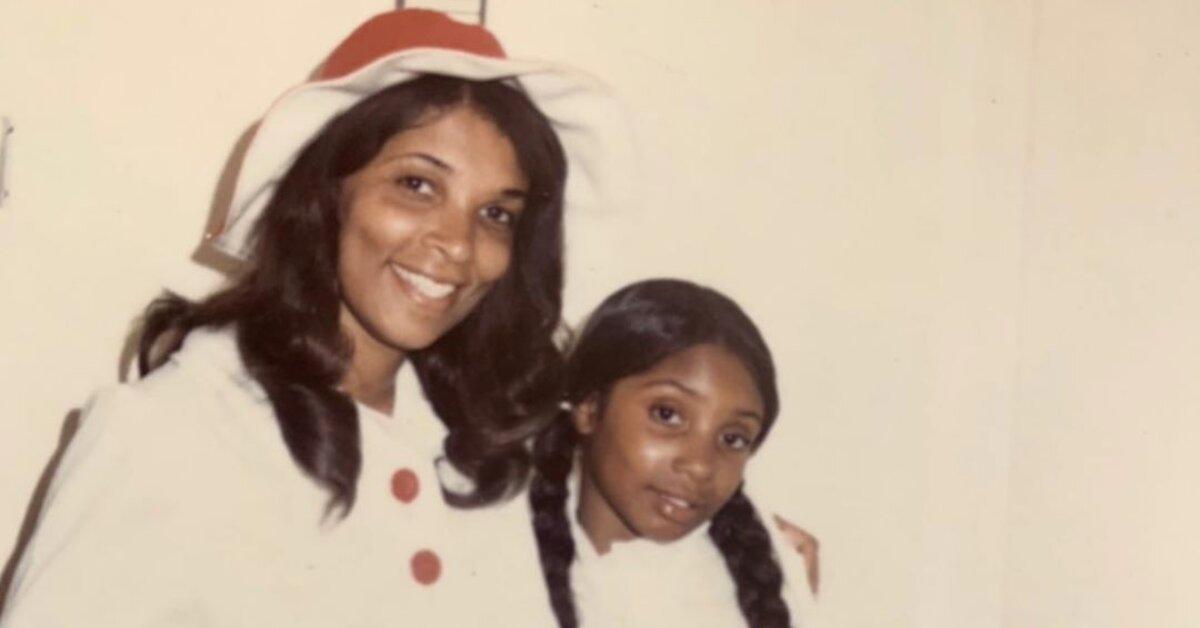Ever wondered who the paternal figure is behind the successful entrepreneur Jennifer Williams? The answer is Al Sharpton, and his story is far more layered and compelling than a simple name reveal. He's a multifaceted force, a name synonymous with civil rights, a voice amplified through ministry and media, and a leader who has consistently challenged the status quo.
Jennifer Williams father, Al Sharpton, stands as a monumental figure in contemporary American history. He is a civil rights activist who has never shied away from confronting injustice, a Baptist minister whose sermons resonate with calls for equality, and a media personality wielding influence through television and radio. Sharpton's journey is marked by unwavering commitment, sometimes controversial stances, and a profound impact on the socio-political landscape of the United States. His career is a testament to the power of perseverance and the enduring need for advocacy in the face of inequality. From grassroots organizing to national media platforms, Sharpton has consistently used his voice to champion the marginalized and challenge systemic injustices.
| Name: | Al Sharpton |
| Born: | October 3, 1954 |
| Birthplace: | Brooklyn, New York |
| Occupation: | Civil rights activist, Baptist minister, television and radio talk show host, businessman, philanthropist |
| Spouse: | Kathy Jordan |
| Children: | Dominique Sharpton, Al Sharpton Jr. |
| Website: | National Action Network |
Sharptons fervent advocacy for civil rights has been a defining characteristic of his career. He's been at the forefront of numerous battles against racial injustice, lending his voice and influence to cases that have captured national attention. His unwavering dedication to fighting for the rights of the oppressed has solidified his place as a pivotal figure in the ongoing struggle for equality.
Sharpton's involvement in the Tawana Brawley case in 1987, while controversial, undeniably thrust the issue of racial bias and injustice into the national spotlight. Regardless of the legal outcomes, Sharpton's vocal support for Brawley sparked a nationwide debate and fueled discussions about race relations that continue to this day. The case served as a stark reminder of the deep-seated racial tensions that still permeate American society.
The Amadou Diallo case in 1999 further cemented Sharpton's role as a leading voice against police brutality. The shooting of Diallo, an unarmed immigrant, by New York City police officers ignited widespread outrage and protests. Sharpton's relentless advocacy for Diallo's family and his calls for police reform helped to galvanize public opinion and push for greater accountability within law enforcement. This case became a touchstone for the national conversation on racial profiling and the excessive use of force by police.
Sharpton's impact transcends specific cases. His persistent efforts have contributed significantly to shaping public discourse on civil rights and social justice. Hes consistently challenged the power structures and amplified the voices of those often unheard, making him a force to be reckoned with in the fight for a more equitable society. This commitment is more than just a job; it's a deeply ingrained part of who he is, shaping his relationships and influencing the values he instills in his family, including his daughter, Jennifer Williams. The principles of fairness, equality, and social responsibility are likely cornerstones of their family dynamic, passed down through generations.
- Exploring Pinay Flix Site Your Guide To Filipino Entertainment
- Ramen Recall Alert Are Ramen Noodles Safe To Eat Today
His role as a Baptist minister adds another layer to the complexity of Al Sharpton's public persona. His faith is not merely a personal conviction but a driving force behind his social activism. The teachings of love, compassion, and justice, central to the Baptist tradition, inform his views on issues ranging from poverty to police brutality. This moral compass guides his actions and lends a unique perspective to his commentary on contemporary issues.
As a spiritual leader, Sharpton feels a profound moral imperative to confront injustice wherever he finds it. His religious beliefs provide a framework for understanding the world and a sense of responsibility to advocate for those who are marginalized. This sense of duty fuels his relentless pursuit of social change and gives his message a unique power and resonance. His commitment to community extends far beyond the pulpit, manifesting in tangible programs and initiatives designed to uplift the disadvantaged.
Sharptons sermons often serve as powerful calls to action, inspiring listeners to challenge the status quo and demand a more just society. His ability to connect religious principles with contemporary social issues has made him a compelling voice for change and a respected figure within the African American community and beyond.He understands that faith and action are inextricably linked, and his ministry reflects this conviction.
Sharpton's influence extends far beyond the church. As a television and radio talk show host, he has access to platforms that allow him to reach millions with his message. "Keepin' It Real," his radio program, provides a space for unfiltered dialogue on pressing social and political issues. "PoliticsNation" on MSNBC offers a platform for in-depth analysis and commentary on the political landscape. Through these media outlets, Sharpton has the power to shape public opinion and influence policy debates.
He skillfully employs these platforms to dissect complex issues, challenge prevailing narratives, and amplify the voices of those often excluded from mainstream media. Sharpton's presence in media is not merely about entertainment; it's about using communication as a tool for social change. He leverages his ability to articulate his ideas clearly and passionately to galvanize support for his causes and hold those in power accountable.
Sharpton's media presence has enabled him to build a broad coalition of supporters and to engage in national conversations on important issues. He has used his platforms to advocate for policy changes, to support political candidates, and to mobilize grassroots movements. His influence in media has undoubtedly contributed to his success as a civil rights activist and his ability to shape the national discourse on race and justice. He understands the power of media to influence hearts and minds, and he uses it strategically to advance his agenda.
Beyond his roles as an activist, minister, and media personality, Al Sharpton is also a shrewd businessman. He is the founder and CEO of the National Action Network (NAN), a non-profit organization dedicated to promoting social justice and civil rights. NAN serves as a powerful vehicle for Sharpton's activism, allowing him to organize protests, advocate for policy changes, and provide resources to communities in need.
NAN's mission is to "promote a modern civil rights agenda that includes the fight for one standard of justice, decency, and equal opportunities for all Americans." Under Sharpton's leadership, NAN has become a significant force in the fight for social justice. The organization addresses a wide range of issues, including voting rights, criminal justice reform, and economic equality. Through NAN, Sharpton is able to translate his ideals into concrete action, making a tangible difference in the lives of countless individuals.
NAN's impact extends beyond the political arena. The organization also provides essential services to communities, such as job training, educational programs, and disaster relief. Sharpton understands that social justice requires not only political change but also economic empowerment and community support. Through NAN, he is working to create a more just and equitable society from the ground up.
Adding another dimension to his character, Al Sharpton is a known philanthropist, directing a considerable portion of his resources to charitable endeavors. His contributions extend to diverse causes, encompassing civil rights organizations, academic institutions, and healthcare providers. Sharpton's philanthropic efforts enable scholarships, offer legal aid to those with limited means, and bolster initiatives aimed at alleviating social and economic disparities.
Sharpton views philanthropy not merely as monetary contribution, but as an investment in the betterment of communities, dedicated to providing opportunity for everyone to achieve success. His commitment underscores compassion and belief in the transformative effect of giving back. By investing in education, Sharpton helps to empower individuals to break the cycle of poverty and achieve their full potential. His support for healthcare initiatives ensures that vulnerable populations have access to essential medical services.
Sharpton's philanthropic work is inextricably linked to his broader mission of promoting social justice. He sees charitable giving as an essential component of creating a more equitable society. He understands that addressing systemic inequalities requires not only political activism but also financial support for organizations and programs that are working to uplift marginalized communities.
The role Al Sharpton plays in American society is a topic that often sparks debate. He remains a polarizing figure, yet his impact is undeniable. His unwavering commitment to civil rights, his powerful voice in media, and his ability to mobilize communities have made him a force to be reckoned with. Even critics acknowledge his influence on the national conversation about race and justice. His contributions have been recognized by numerous organizations and institutions, solidifying his place as a key figure in American history.
Al Sharpton's legacy will continue to be debated and analyzed for years to come. His journey, marked by both triumphs and controversies, serves as a reminder of the ongoing struggle for equality and the power of individual action to shape society. Hes a reminder that progress often comes from challenging the status quo and amplifying the voices of the marginalized.
Jennifer Williams, beyond being the daughter of this influential figure, has carved her own path as a successful businesswoman. As the founder and CEO of Jennifer Williams Cosmetics, she has established a brand catering to women of color, addressing a significant gap in the beauty industry. Her entrepreneurial success showcases her business acumen and dedication to empowering women through cosmetics.
Furthermore, Williams also embraces philanthropy, echoing her father's commitment to giving back to society. Her contributions to various charities demonstrate a shared value for social responsibility and a desire to make a positive impact on the world. This dedication to philanthropy not only strengthens her brand but also aligns her with a legacy of social justice.
In conclusion, Al Sharpton's influence reaches far beyond his immediate endeavors. His impact is felt in the realms of civil rights, religion, media, business, and philanthropy. He is a complex and multifaceted individual who has dedicated his life to fighting for a more just and equitable world. His legacy will undoubtedly continue to shape the American landscape for generations to come, leaving an indelible mark on the ongoing pursuit of social justice and equality.
- Unveiling Nicole Kidman Gezicht 2024 Your Ultimate Guide Now
- Alert Ramen Noodles Listeria 2024 What You Must Know Now


